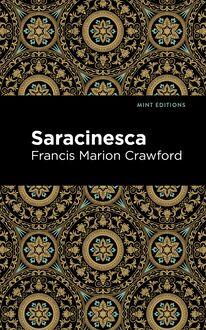-
 Univers
Univers
-
 Ebooks
Ebooks
-
 Livres audio
Livres audio
-
 Presse
Presse
-
 Podcasts
Podcasts
-
 BD
BD
-
 Documents
Documents
-
- Cours
- Révisions
- Ressources pédagogiques
- Sciences de l’éducation
- Manuels scolaires
- Langues
- Travaux de classe
- Annales de BEP
- Etudes supérieures
- Maternelle et primaire
- Fiches de lecture
- Orientation scolaire
- Méthodologie
- Corrigés de devoir
- Annales d’examens et concours
- Annales du bac
- Annales du brevet
- Rapports de stage
La lecture à portée de main
Vous pourrez modifier la taille du texte de cet ouvrage
Découvre YouScribe en t'inscrivant gratuitement
Je m'inscrisDécouvre YouScribe en t'inscrivant gratuitement
Je m'inscrisEn savoir plus
Vous pourrez modifier la taille du texte de cet ouvrage
En savoir plus

Description
Trafalgar (1873) is a novel by Benito Pérez Galdós. Published toward the beginning of Pérez Galdós’ career, Trafalgar is the first in of 46 historical novels in the author’s monumental, career spanning series of National Episodes. Set during the bloody naval battle of Trafalgar in 1805, Pérez Galdós’ novel is a story of heroism, growth, and adventure that manages to find humanity in history. “Always eager to mimic the greater world around us, we boys too had our squadrons of little ships, roughly hewn in wood, with sails of paper or of rag, which we navigated with the greatest deliberation and gravity in the pools of Puntales or La Caleta.” At fourteen, the young orphan Gabriel de Araceli gets the chance to leave boyhood games behind when his master, a retired naval officer, receives a letter requesting his return to service. Together, Gabriel and Don Alonso set out to join a Spanish Armada preparing to enter into battle with the British Royal Navy. Painstakingly researched by its author, Trafalgar is a detailed fictional retelling of one history’s most iconic conflicts. With a beautifully designed cover and professionally typeset manuscript, this edition of Benito Pérez Galdós’s Trafalgar is a classic of Spanish literature reimagined for modern readers.
Sujets
Informations
| Publié par | Mint Editions |
| Date de parution | 12 octobre 2021 |
| Nombre de lectures | 0 |
| EAN13 | 9781513213453 |
| Langue | English |
| Poids de l'ouvrage | 3 Mo |
Informations légales : prix de location à la page 0,0400€. Cette information est donnée uniquement à titre indicatif conformément à la législation en vigueur.
Extrait
Trafalgar
Benito Pérez Galdós
Trafalgar was first published in 1884.
This edition published by Mint Editions 2021.
ISBN 9781513215457 | E-ISBN 9781513213453
Published by Mint Editions ®
minteditionbooks.com
Publishing Director: Jennifer Newens
Design & Production: Rachel Lopez Metzger
Project Manager: Micaela Clark
Translated by: Clara Bell
Typesetting: Westchester Publishing Services
C ONTENTS I II III IV V VI VII VIII IX X XI XII XIII XIV XV XVI XVII
I
I trust that, before relating the important events of which I have been an eye-witness, I may be allowed to say a few words about my early life and to explain the singular accidents and circumstances which resulted in my being present at our great naval catastrophe.
In speaking of my birth I cannot follow the example of most writers who narrate the facts of their own lives, and who begin by naming their ancestry—usually of noble rank, hidalgos at the very least, if not actually descended from some royal or imperial progenitor. I cannot grace my opening page with high-sounding names, for, excepting my mother whom I remember for some few years, I know nothing of any of my forefathers, unless it be Adam from whom my descent would seem to be indisputable. In short, my history began in much the same way as that of Pablos, the brigand of Segovia; happily it pleased God that it should resemble it in no other particular.
I was born at Cadiz in the notorious quarter “de la Vi ñ a,” which was not then, anymore than at the present day, a good school of either morals or manners. My memory does not throw any light on the events of my infancy till I was six years old, and I remember that, only because I associate the idea of being six with an event I heard much talked about, the battle of Cape St. Vincent, which took place in 1797.
Endeavoring to see myself as I was at that time, with the curiosity and interest which must attach to self-contemplation, I am aware of a dim and hazy little figure in the picture of past events, playing in the creek with other small boys of the same age, more or less. This was to me the whole of life—as it was, at any rate, to our privileged class; those who did not live as I did appeared to me exceptional beings. In my childish ignorance of the world I firmly believed that man was made for the sea, Providence having created him to swim as being the noblest exercise of his limbs and body, and to dive for crabs as the highest use of his intelligence—and especially to fish up and sell the highly-esteemed crustacean known as Bocas de la Isla —as well as for his personal delectation and enjoyment, thus combining pleasure with profit.
The society into which I was born was indeed of the roughest, as ignorant and squalid as can well be imagined; so much so that the boys of our quarter of the town were regarded as even lower than those of the adjoining suburb of Puntales, whose occupations were the same and who defied the elements with equal devilry; the result of this invidious distinction was that each party looked upon the other as rivals, and the opposing forces would meet from time to time for a pitched battle with stones, when the earth was stained with heroic blood.
When I was old enough to begin to think that I might go into business on my own account, with a view to turning an honest penny, I remember that my sharpness stood me in good stead on the quay where I acted as valet de place to the numerous English who then, as now, disembarked there. The quay was a free academy peculiarly fitted to sharpen the wits and make the learner wide-awake, and I was not one of the least apt of its disciples in that wide branch of human experience; nor did I fail to distinguish myself in petty thefts, especially of fruit, an art for which the Plaza de San Juan offered an ample field, both for the experiments of the beginner and the exploits of the adept. But I have no wish to enlarge on this part of my history, for I blush with shame now, as I remember the depth to which I had sunk, and I thank God for having released me from it at an early period, and directed me into a better path.
Among the impressions which remain most vivid in my memory is the enthusiastic delight I felt at the sight of vessels of war, when they anchored outside Cadiz or in the cove of San Fernando. As I had no means of satisfying my curiosity, when I saw these enormous structures I conceived the most absurd and fanciful ideas about them, imagining them as full of mysteries.
Always eager to mimic the greater world around us, we boys too had our squadrons of little ships, roughly hewn in wood, with sails of paper or of rag, which we navigated with the greatest deliberation and gravity in the pools of Puntales or La Caleta. To make all complete, whenever a few coppers came into our hands, earned by one or another of our small industries, we bought powder of old “Aunt Coscoja” in the street “del Torno de Santa Mar í a,” and with this we could have a grand naval display. Our fleets sailed before the wind in an ocean three yards across, fired off their cannon, came alongside of each other to mimic a hand-to-hand fight—in which the imaginary crews valiantly held their own, and swarmed into the tops unfurling the flag, made of any scrap of colored rag we could pick up in a dust-heap—while we danced with ecstasy on the shore at the popping of the artillery, imagining ourselves to be the nationalities represented by our respective standards, and almost believing that in the world of grown-up men and great events the nations too would leap for joy, looking on at the victories of their splendid fleets. Boys see things through strange windows.
Those were times of great sea-fights, for there was one at least every year and a skirmish every month. I thought that fleets met in battle simply and solely because they enjoyed it, or to prove their strength and valor, like two bullies who meet outside the walls to stick knives into each other. I laugh when I recollect the wild ideas I had about the persons and events of the time. I heard a great deal about Napoleon and how do you think I had pictured him to myself! In every respect exactly like the smugglers whom we not unfrequently saw in our low quarter of the town: Contrabandistas from the lines at Gibraltar. I fancied him a man on horseback, on a Xerez nag, with a cloak, high boots, a broad felt-hat, and a blunderbuss of course. With these accoutrements, and followed by other adventurers on the same pattern, I supposed this man, whom all agreed in describing as most extraordinary, to have conquered Europe, which I fancied was a large island within which were other islands which were the different nations: England, Genoa, London, France, Malta, the land where the Moors lived, America, Gibraltar, Port Mahon, Russia, Toulon and so forth. This scheme of geography I had constructed on the basis of the names of the places from which the ships came whose passengers I had to deal with; and I need not say that of all these nations or islands Spain was the very best, for which reason the English—men after the likeness of highwaymen—wanted to get it for their own. Talking of these and similar matters I and my amphibious companions would give vent to sentiments and opinions inspired by the most ardent patriotism.
However, I need not weary the reader with trifles which relate only to my personal fancies, so I will say no more about myself. The one living soul that made up to me for the wretchedness of life by a wholly disinterested love for me, was my mother. All I can remember of her is that she was extremely pretty, or at any rate she seemed so to me. From the time when she was left a widow she maintained herself and me by doing washing, and mending sailors’ clothes. She must have loved me dearly. I fell ill of yellow fever which was raging in Andalusia and when I got well she took me solemnly to mass at the old cathedral and made me kneel on the pavement for more than an hour, and then, as an ex-voto offering, she placed an image in wax of a child, which I believed to be an exact likeness of myself, at the foot of the altar where the service had been performed.
My mother had a brother, and if she was pretty, he was ugly and a cruel wretch into the bargain. I cannot think of my uncle without horror, and from one or two occurrences which I remember vividly I infer that this man must have committed some crime at the time I refer to. He was a sailor; when he was on shore and at Cadiz he would come home furiously drunk, and treat us brutally—his sister with words, calling her every abusive name, and me with deeds, beating me without any reason whatever.
My mother must have suffered greatly from her brother’s atrocities, and these, added to severe labor for miserable pay, hastened her death which left an indelible impression on my feelings, though the details dwell but vaguely in my memory. During this period of misery and vagabondage my only occupations were playing by the sea-shore or running about the streets. My only troubles were a beating from my uncle, a frown from my mother, or some mishap in the conduct of my squadrons. I had never felt any really strong or deep emotion till the loss of my mother showed me life under a harder and clearer aspect than it had ever before presented to me. The shock it gave me has never faded from my mind. After all these years I still remember, as we remember the horrible pictures of a bad dream, that my mother lay prostrate from some sickness, I know not what; I remember women coming and going, whose names and purpose I cannot recall; I remember hearing cries of lamentation, and being placed in my mother’s arms, and then I remember the shudder that ran through my whole body at the touch of a cold, cold hand. I think I was then taken away; but mixed up with these dim memories I can see the yellow tapers which gave a ghastly light at mid-day, I can hear the muttering of prayers, the hoar
-
 Univers
Univers
-
 Ebooks
Ebooks
-
 Livres audio
Livres audio
-
 Presse
Presse
-
 Podcasts
Podcasts
-
 BD
BD
-
 Documents
Documents
-
Jeunesse
-
Littérature
-
Ressources professionnelles
-
Santé et bien-être
-
Savoirs
-
Education
-
Loisirs et hobbies
-
Art, musique et cinéma
-
Actualité et débat de société
-
Jeunesse
-
Littérature
-
Ressources professionnelles
-
Santé et bien-être
-
Savoirs
-
Education
-
Loisirs et hobbies
-
Art, musique et cinéma
-
Actualité et débat de société
-
Actualités
-
Lifestyle
-
Presse jeunesse
-
Presse professionnelle
-
Pratique
-
Presse sportive
-
Presse internationale
-
Culture & Médias
-
Action et Aventures
-
Science-fiction et Fantasy
-
Société
-
Jeunesse
-
Littérature
-
Ressources professionnelles
-
Santé et bien-être
-
Savoirs
-
Education
-
Loisirs et hobbies
-
Art, musique et cinéma
-
Actualité et débat de société
- Cours
- Révisions
- Ressources pédagogiques
- Sciences de l’éducation
- Manuels scolaires
- Langues
- Travaux de classe
- Annales de BEP
- Etudes supérieures
- Maternelle et primaire
- Fiches de lecture
- Orientation scolaire
- Méthodologie
- Corrigés de devoir
- Annales d’examens et concours
- Annales du bac
- Annales du brevet
- Rapports de stage




















